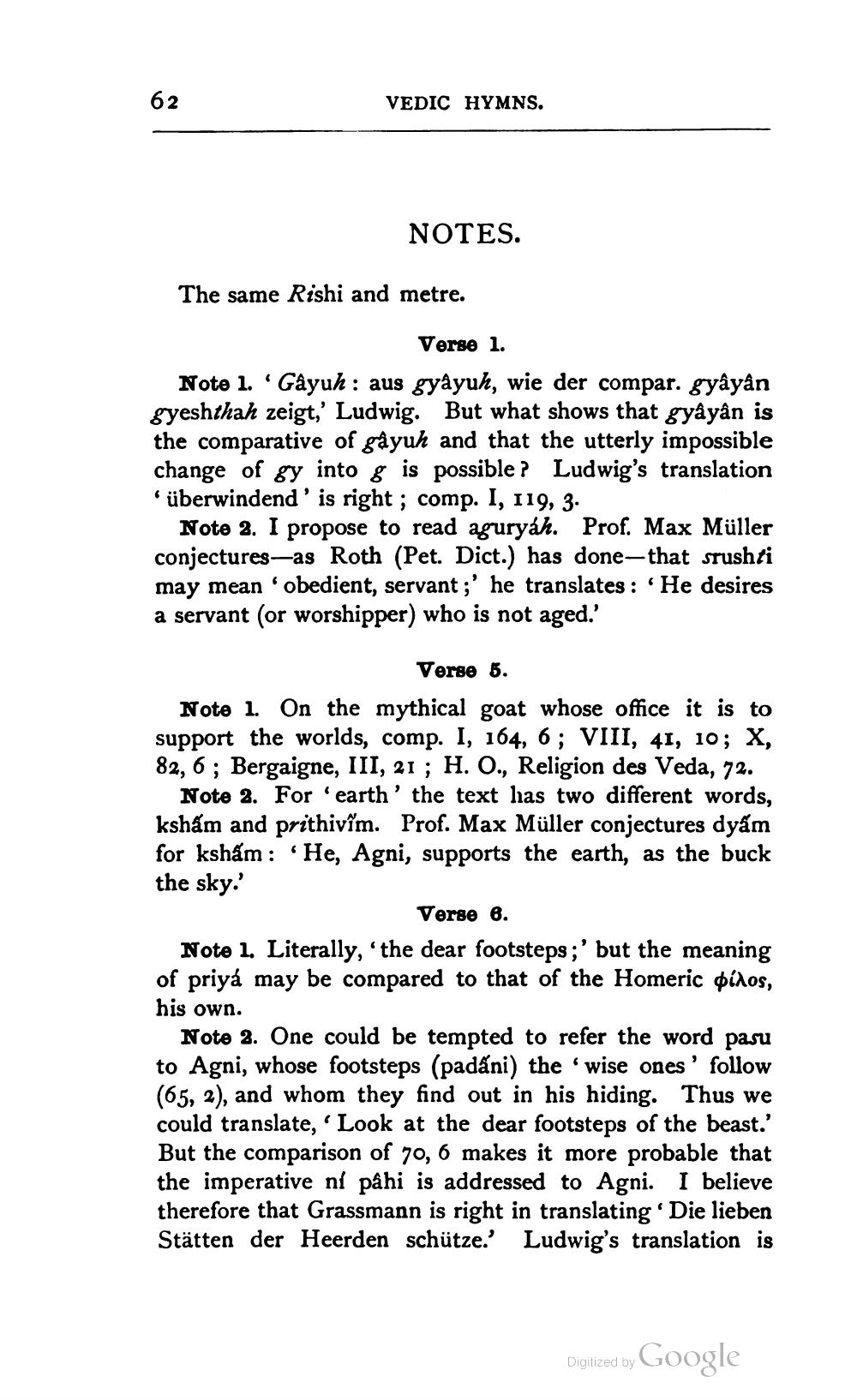________________
62
VEDIC HYMNS.
NOTES.
The same Rishi and metre.
Verse 1.
Note 1. Gâyuh: aus gyâyuh, wie der compar. gyâyân gyeshthah zeigt,' Ludwig. But what shows that gyâyân is the comparative of gâyuh and that the utterly impossible change of gy into g is possible? Ludwig's translation ' überwindend' is right; comp. I, 119, 3.
Note 2. I propose to read aguryáh. Prof. Max Müller conjectures-as Roth (Pet. Dict.) has done-that srushti may mean 'obedient, servant;' he translates: 'He desires a servant (or worshipper) who is not aged.'
Verse 5.
Note 1. On the mythical goat whose office it is to support the worlds, comp. I, 164, 6; VIII, 41, 10; X, 82, 6; Bergaigne, III, 21; H. O., Religion des Veda, 72.
Note 2. For 'earth' the text has two different words, ksham and prithivim. Prof. Max Müller conjectures dyẩm for kshẩm: 'He, Agni, supports the earth, as the buck the sky.'
Verse 6.
Note 1. Literally, 'the dear footsteps;' but the meaning of priyá may be compared to that of the Homeric píλos, his own.
Note 2. One could be tempted to refer the word pasu to Agni, whose footsteps (padáni) the 'wise ones ' follow (65, 2), and whom they find out in his hiding. Thus we could translate, 'Look at the dear footsteps of the beast.' But the comparison of 70, 6 makes it more probable that the imperative ní pâhi is addressed to Agni. I believe therefore that Grassmann is right in translating' Die lieben Stätten der Heerden schütze.' Ludwig's translation is
Digitized by
Google




